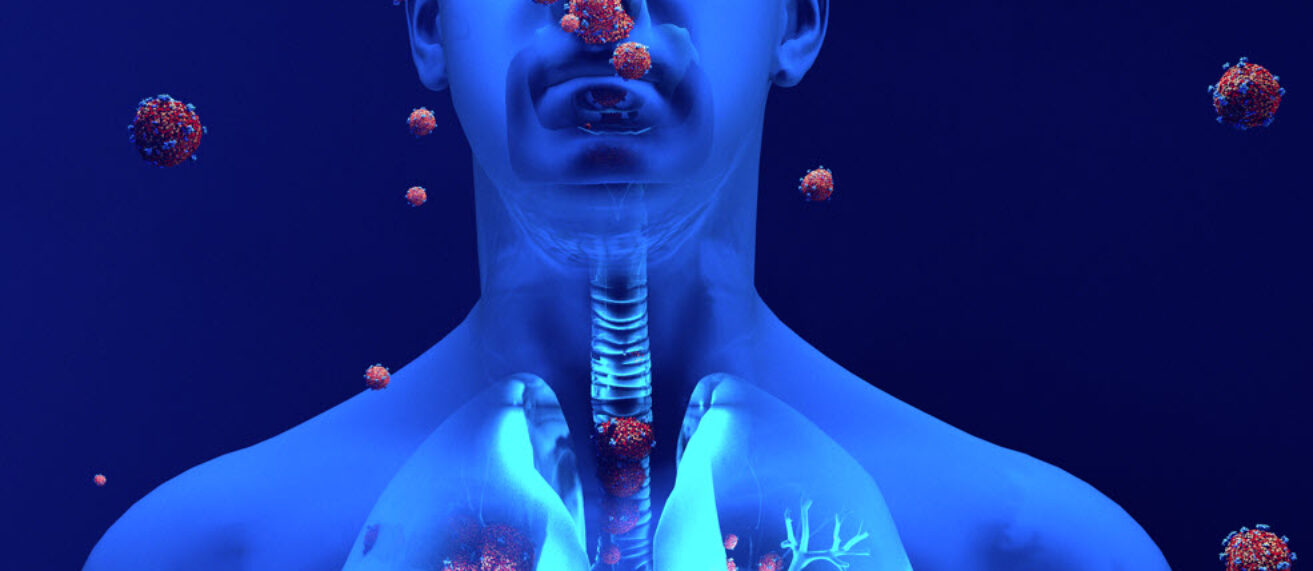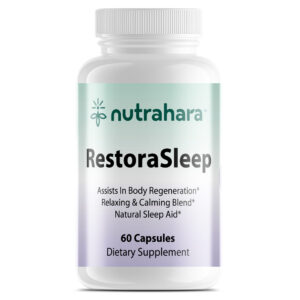
Nutrahara Blog
Nutrahara Blog
What Is Immune Defense
Immunity: Immunity Types, Immune System Disorders, And How To Boost Your Immune Defense
Immune defense is the ability of the body to wade off microorganisms such as bacteria, viruses, and fungi that are capable of causing infections in the body. Immunity in a sentence is the ability of the body to fight off foreign invaders either microbe or cancerous cells. The immune system is a complex system made of organs and cells that interact to subserve the defensive function. The immune system plays an indispensable role in maintaining healthy living. They are divided into two broad types of immunity based on the rapidity of their responses which are Innate and adaptive.
Types of immunity
There are two types of immunity, active immunity, and passive immunity.
Active immunity
Active immunity is achieved when the immune system is exposed to a disease organism, it produces antibodies against that illness. This type of immunity can either be gotten naturally or from vaccination. Natural immunity is developed via exposure to the disease-causing agent and subsequent disease-related illness. Through vaccination, a weakened or dead form of the pathogenic microbe is introduced, resulting in the development of vaccine-induced immunity. (1)
In whatever circumstance, if an immune person later comes into touch with that disease, their immune system will instantly detect it and makes the antibodies required to combat it. Active immunity is persistent and occasionally lifelong. (1)
Passive Immunity
Passive immunity is acquired when antibodies against disease are administered to a person rather than produced by the person’s system. Through the placenta, a newborn infant receives passive immunity from their mother while in the womb. Passive immunity can also be obtained by antibody-containing blood products such as immune globulin, that may be administered when rapid protection from a specific illness is required like tetanus antitoxin. (1)
Passive immunity gives instant protection since active immunity requires a long time (typically several weeks) to develop. Passive immunity, on the other hand, only lasts for some time unlike active immunity lasts a long time. (1) Furthermore, immune defense responses can further be classified as either innate or adaptive based on their response time and effectiveness.(1)
Innate vs Adaptive Immune Function
The innate immune response is unspecific and forms the initial line of protection against infections. The innate immune response includes physical, chemical, and cell-mediated protection against infections. The innate immune response aim is to stop the growth and spread of invading infections throughout the body quickly. (2)
Adaptive immune response forms the body’s second line of defense against pathologic microbes.
The adaptive immune response is customized to the pathogen in question and thus adapted to combat specific microorganisms is optimized for. Despite its effectiveness, it can occasionally make mistakes and attack itself. The adaptive immune response can lead to the development of autoimmune disease where the body’s immune system attacks its own. lupus, myasthenia gravis, and rheumatoid arthritis are good examples of such conditions. (2)
Although the adaptive immune response is slower than the innate immune response, however, it is more effective. The adaptive immune response, on the other hand, has a long-lasting and highly specific impact that is sustained over an extended period by memory T cells. (2)
Where is the Immune System Located?
The immune system is located in several organs across the body. These organs include the adenoids which are two glands found behind the nasal passage. Another is the bone marrow, which is the soft, spongy tissue found within bone cavities. (3)
Lymph nodes are distributed throughout the body and take the shape of a bean. lymph nodes are connected by lymphatic vessels, which form a network of channels responsible for transporting lymphocytes to lymphoid organs and the bloodstream. (3)
Other sites where immune system located are Peyer patches, thymus, spleen, and tonsils. Peyer patches are a form of lymphoid tissue found in the small intestine, whereas the spleen is a fist-sized immune organ found in the abdomen. The thymus consists of two lobes and is situated in front of the windpipe and behind the breastbone. The tonsils are two oval masses located at the back of the throat. (3)
Also, the immune and lymphatic system are interconnected. The lymphatics system is the network of vessels that transports lymph across the body. Lymph is a fluid containing absorbed fat and also antibodies cells that are responsible for fighting off disease-causing microbes.
Immune System Disorders
The following are disorders that can result from the immune system:
Diseases resulting from an overactive immune system
- Asthma: A respiratory disease characterized by coughing, wheezing, and difficulty with breathing that may arise from the reaction in your lungs. Asthma can be induced by common allergens such as dust or pollen, as well as irritants such as cigarette smoke.
- Eczema: (Atopic dermatitis): This is an itchy rash caused by a substance that triggers allergies(allergen).
- Allergic rhinitis: People who suffer from allergic rhinitis complain of frequent sneezing, and runny nose upon exposure to Indoor allergens like dust or outdoor allergens such as pollens. (4)
Diseases that result from the body fighting itself (Autoimmune diseases)
The body produces antibodies to attack its normal, healthy tissues in autoimmune disorders. The exact reason is unknown(idiopathic). It is most likely a mix of an individual’s genetic makeup and anything in the environment that causes those genes to be activated. (4)
Examples of such disorders include:
- Diabetes Arthritis type one: The immune system targets pancreatic insulin-producing cells. Insulin is a hormone that eliminates glucose from the bloodstream to be converted to energy. (4)
- Rheumatoid arthritis: This kind of arthritis produces joint swelling and abnormalities. Some persons with rheumatoid arthritis have an auto-antibody known as rheumatoid factor, which is present in their blood. (4)
- Lupus: This condition affects bodily tissues such as the lungs, kidneys, and skin. Autoantibodies of various sorts are discovered in the bloodstreams of persons with lupus. (4)
Immune insufficiency
Some conditions either inherited (from birth) or acquired might cause the immune system to become incompetent in fighting off invading microorganisms.
Examples of such conditions can be further classified into primary (from birth) and secondary(acquired):
- Primary Immunodeficiency: Severe Combined Immune Disorder, common variable immunodeficiency, and chronic granulomatous disease (CGD). Such children are always at risk for bacterial, viral, and fungal illnesses. (11)
- Secondary immunodeficiency: These are caused by factors not present at birth but acquired as one grows up. (11)
Examples are:
- Poor nutrition
- Smoking
- Alcohol
- Diabetes
- Steroids Use
- Chemotherapy
- Measles
- Mononucleosis
- HIV (11)
How To Boost Your Immune Defense For Wellness
Adequate Sleep
Immunity and sleep are closely linked. An increased vulnerability to illness has been related to little or poor quality of sleep. A result of study on sleep duration that was published in 2015 revealed that those who get less than 6 hours of sleep have more probability of coming down with a cold compared to persons who get more than 6 or more hours of sleep every day. Thus, it is safe to conclude that persistent periods of insufficient sleep can weaken the immune defense. (4)
Smoking cessation
Smoking harms one’s immunity. Quitting smoking is an important step towards achieving good immunity. (6)
Consumption of whole plant food
Taking vegetables, legumes, and fruits that are high in minerals and antioxidants, giving you an advantage against dangerous microorganisms. The antioxidants in such foods help to reduce inflammation by neutralizing unstable chemicals known as free radicals, which can lead to inflammation when they accumulate in high quantities in your body. Antioxidant-containing fruit or supplements like oranges, and immunity elderberry are rich in Vitamin C which is an important antioxidant, which is and important immunity aid to bolster the function of the immune system. (5)
Cut added sugar consumption
Based to new studies, added sugars and processed carbohydrates may contribute significantly to overweight and obesity. Supporting evidence can be seen in the result of an observational study of roughly 1000 participants vaccinated with the flu vaccine. The results showed that those with obesity are 2 times more likely to contract the flu compared to persons without obesity. (5)
Moderate exercise
While excessive exercise might depress your immune system, moderate exercise can increase it. According to research, just a single session of light physical activity can improve the efficacy of vaccinations in adults with impaired immune systems. Regular exercise is an immunity aid that can help strengthen the immune system.
Moderate exercise can lessen inflammation and help regenerate immune cells. Brisk walking, jogging, running, swimming, and gentle trekking are all examples of moderate exercise. The average person should target getting 150 minutes every week of moderate exercise. (5)
Role of Supplements
Zinc
Zinc is required for immune cell growth and communication, as well as for the inflammatory response. Zinc also supports barrier protection of our bodies and aids in the prevention of external infections from entering. Numerous studies support the claim that zinc supplementation helps protect against respiratory infections such as common colds. (7)
A lack of this vitamin has a substantial impact on your immune system’s capacity to operate effectively, increasing your likelihood of contracting infections and illness, including pneumonia. (7)
Vitamin D
This is a lipid-soluble substance that is vital for immune system health and function. Vitamin D formula boosts the pathogen-fighting abilities of monocytes as well as macrophages, these immune cells play an essential role in immune defense — and reduce inflammation, which promotes immunological response. (7)
Many people are lacking in this vital vitamin, and its lack can impair their immune defense. Furthermore, low vitamin D levels have been linked to a higher chance of having an infection of the upper respiratory tract such as influenza and allergic asthma. Vitamin D supplementation may boost immunological response based on certain research findings. In fact, new evidence shows that consuming this vitamin may help prevent respiratory tract infections. (7)
Other research suggests that vitamin D supplementation may increase antiviral therapy response in persons with specific diseases, such as hepatitis C and HIV. (7)
Vitamin C
Vitamin C or ascorbic acid is a water-soluble nutrient that has become the most widely recognized supplement used to fight against infection. (7)
This vitamin helps immune cells operate properly and increases their ability to fight illness, therefore boosting immune defense. It is also required for cellular death, helping in the maintenance of your immune system by cleaning away old cells and substituting them with new ones. (7)
Vitamin C also acts as a potent antioxidant, preventing damage caused by oxidative stress, which happens when reactive molecules called free radicals to accumulate. Oxidative stress has been related to a variety of illnesses and has a detrimental impact on immunological function. Vitamin C supplementation has been demonstrated to shorten the duration as well as the extent of upper respiratory tract infections, particularly the common cold. (7)
Elderberry
Elderberry is a fruit produced by the Sambucus tree. The most prevalent kind is Sambucus nigra. Elderberry, which has been utilized for years for treating illnesses, is being studied for its immune-boosting properties. (7)
A combination of other nutritional supplements and elderberry can be used to prepare immunity elderberry. Elderberry extract exhibits substantial antibacterial and antiviral properties in test-tube tests against pathogenic bacteria causing upper respiratory tract illnesses and influenza virus strains. It has also been demonstrated to improve the reaction of the immune system and may help lessen the length and intensity of colds, as well as symptoms associated with viral infections. (7,10)
A 2004 study found that persons with the flu who took one tablespoon of syrup made with elderberries 4 times daily saw symptom alleviation 4 days faster than those who didn’t and were less dependent on the medicine. Immunity elderberry supplements significantly improved symptoms of upper respiratory infection caused by viral infections according to the study. Though elderberry has been proposed to help reduce symptoms of some illnesses including the influenza virus, one must also be cautious of the hazards. (7)
Immunity Mushrooms
A wide range of immunity mushroom species have been found to aid immune function in a number of ways. Shiitake, Lion’s Mane, Maitake, and Reishi are some therapeutic mushrooms. (12)
Immunity juice
Extracts of multiple fruits can be used to prepare a nutrient-fortified immunity juice boost. Fruits can also be blended to make smoothies that provide natural nutrient supplementation. Immunity juice recipes are a combination of oranges + grapefruit + other citrus or a combination of carrots + apples + oranges. Many other fruits can be extracted or blended to make immunity juice shots. These blends are rich in vitamin A, vitamin B6, vitamin C, potassium, and folate (8,9). Immune defense-boosting preparations apart from immunity juice or smoothies are immunity soup, immunity essential oil, and immunity pills.
Immunity essential oil
A number of essentials have been in use for boosting immunity. A good example of immunity essential oil is Eucalyptus oil. It possesses both anti-inflammatory and antioxidant activities. (13)
Immune therapy center
The evolution of immune-based therapies to a more specialized immune therapy center is a testament to medical technology’s contributions to preventive and curative medicine.(13)
Summary
Maintaining a healthy immune system is essential for overall health and wellbeing. Immune health can be supported through a variety of means, including proper nutrition and the use of supplements like vitamin D3 and echinacea. An adequate intake of key vitamins and minerals is necessary for immune system function, with daily doses of 1000 mg of vitamin C and 1000-2000 IU of vitamin D3 recommended.
Supplement facts should be carefully reviewed to ensure that the desired amount of nutrients are being consumed. Echinacea is a popular herb that has been shown to support overall immune health and boost immune function. It is important to remember that the immune system needs to be nurtured and protected on a daily basis to maintain optimal function. Organic turmeric also plays an important role to support a healthy immune system to fight against inflammation.
A balanced diet with a powerful blend of natural and organic ingredients helps boost your natural defenses. By making conscious choices regarding diet and supplements, we can select to empower our immune defense to function at its best and support overall health. In addition, consult your healthcare professional and wellness consultants to learn about natural ways to boost your immune defense.
References
https://www.hopkinsmedicine.org/health/conditions-and-diseases/the-immune-system
https://www.hopkinsmedicine.org/health/conditions-and-diseases/disorders-of-the-immune-system
https://www.healthline.com/nutrition/how-to-boost-immune-health#1.-Get-enough-sleep
https://www.healthline.com/nutrition/immune-boosting-supplements#3.-Vitamin-C
https://www.healthline.com/health/juice-immune-system-boost
https://helloletsglow.com/glow-boosting-apple-carrot-juice-recipe/
https://www.cnet.com/health/nutrition/best-immunity-supplements/
https://www.healthline.com/health/immunodeficiency-disorders#types
https://www.healthline.com/health/essential-oils-for-immunity#eucalyptus
http://m.chaum.net/en/technology/immuneTherapy.aspx?menuCode=D_C01
Written by the Nutrahara Team
This article was prepared by the expert team at Nutrahara, which includes experienced nutrition scientists and naturopaths dedicated to advancing women’s health through natural wellness solutions. We combine scientific research with holistic practices to help you live your healthiest life.
Connect with us on LinkedIn to stay updated on the latest in women’s health and wellness.











